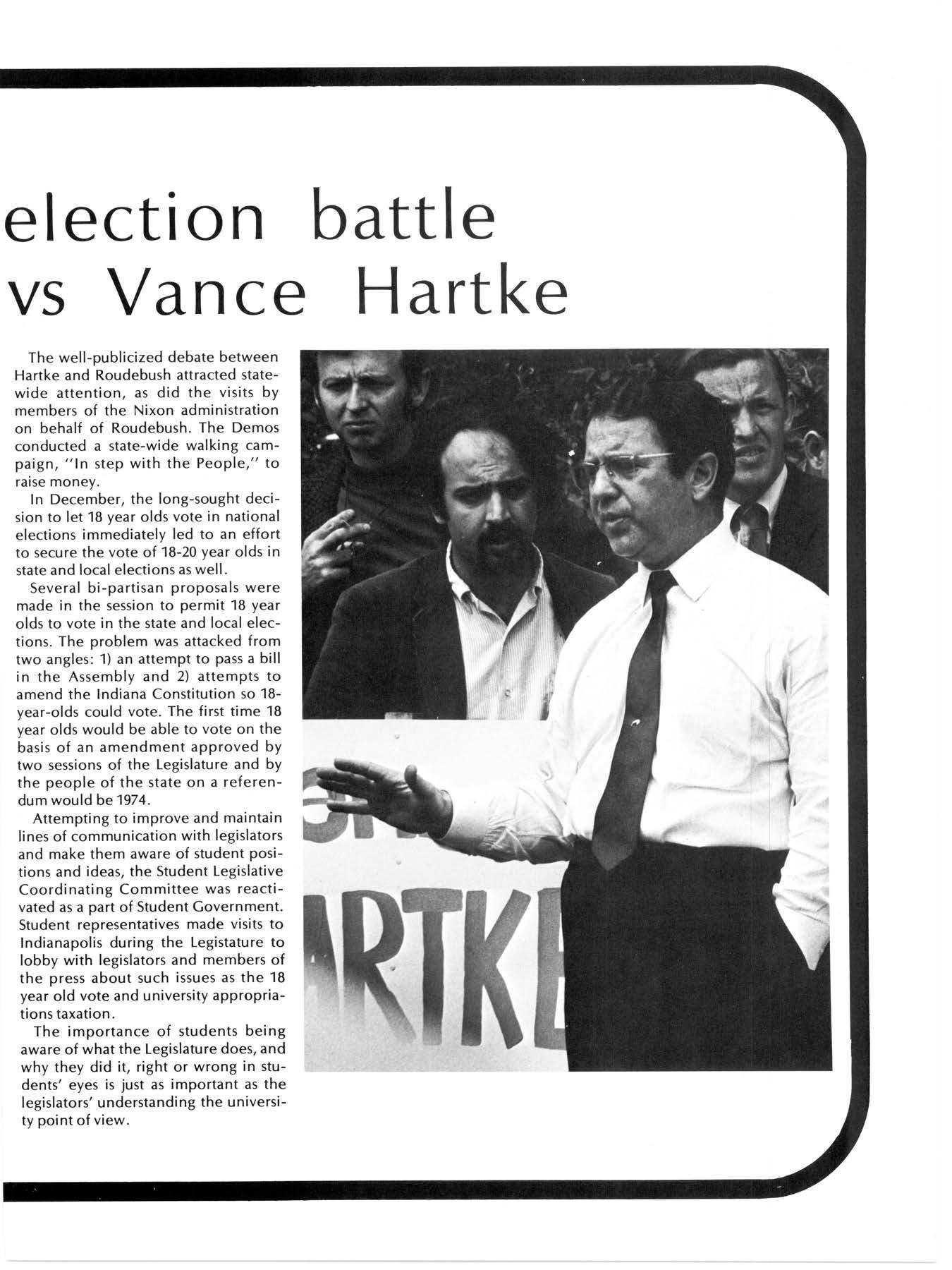
2 minute read
1970 — A BITTER ELECTION CAMPAIGN
1970-The bitter Richard Roudebush
"Politics is the art of human happiness." — H.A.L. Fisher
Indiana's fall 1970 Senatorial election was one of the most bitterly contested in the history of the state. The election focused on the Senatorial race between incumbent Democrat Vance Hartke and challenger Republican Fifth District Congressman Richard L. Roudebush.
Democrats in the state directed their campaign against Governor Edgar D. Whitcomb, in his second year in office. Republicans concentrated on unseating Hartke, seeking a third term.
At the start of the campaign, one veteran campaign observer said, "Both parties think they are going to lose." When the votes were counted, Hartke won by a mere 4,383 votes and Roudebush attempted to secure a partial recount in several key counties.
A concern of both parties was the apathy of the general public about the election. Many were turned off by the advertising campaigns of Hartke and Roudebush, which they felt to be in poor taste. The expense of running the state-wide campaigns led to support in the 1971 Legislature for a law to limit campaign spending.
On campus, various state and local candidates made the rounds shaking hands, talking to students, or holding press conferences and making speeches. Support of local candidates was not as intense as the activity for state and Congressional candidates.
I.U. Young Democrats concentrated on helping re-elect Hartke, who had the toughest battle of his career, while the young Republicans worked for Roudebush.
election battle vs Vance Hartke
The well-publicized debate between Hartke and Roudebush attracted statewide attention, as did the visits by members of the Nixon administration on behalf of Roudebush. The Demos conducted a state-wide walking campaign, "In step with the People," to raise money.
In December, the long-sought decision to let 18 year olds vote in national elections immediately led to an effort to secure the vote of 18-20 year olds in state and local elections as well.
Several bi-partisan proposals were made in the session to permit 18 year olds to vote in the state and local elections. The problem was attacked from two angles: 1) an attempt to pass a bill in the Assembly and 2) attempts to amend the Indiana Constitution so 18year-olds could vote. The first time 18 year olds would be able to vote on the basis of an amendment approved by two sessions of the Legislature and by the people of the state on a referendum would be 1974.
Attempting to improve and maintain lines of communication with legislators and make them aware of student positions and ideas, the Student Legislative Coordinating Committee was reactivated as a part of Student Government. Student representatives made visits to Indianapolis during the Legistature to lobby with legislators and members of the press about such issues as the 18 year old vote and university appropriations taxation.
The importance of students being aware of what the Legislature does, and why they did it, right or wrong in students' eyes is just as important as the legislators' understanding the university point of view.




